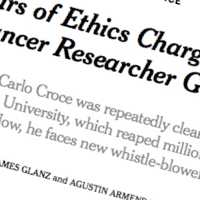Rascals case in brief
In the beginning, in 1989, more than 90 children at the Little Rascals Day Care Center in Edenton, North Carolina, accused a total of 20 adults with 429 instances of sexual abuse over a three-year period. It may have all begun with one parent’s complaint about punishment given her child.
Among the alleged perpetrators: the sheriff and mayor. But prosecutors would charge only Robin Byrum, Darlene Harris, Elizabeth “Betsy” Kelly, Robert “Bob” Kelly, Willard Scott Privott, Shelley Stone and Dawn Wilson – the Edenton 7.
Along with sodomy and beatings, allegations included a baby killed with a handgun, a child being hung upside down from a tree and being set on fire and countless other fantastic incidents involving spaceships, hot air balloons, pirate ships and trained sharks.
By the time prosecutors dropped the last charges in 1997, Little Rascals had become North Carolina’s longest and most costly criminal trial. Prosecutors kept defendants jailed in hopes at least one would turn against their supposed co-conspirators. Remarkably, none did. Another shameful record: Five defendants had to wait longer to face their accusers in court than anyone else in North Carolina history.
Between 1991 and 1997, Ofra Bikel produced three extraordinary episodes on the Little Rascals case for the PBS series “Frontline.” Although “Innocence Lost” did not deter prosecutors, it exposed their tactics and fostered nationwide skepticism and dismay.
With each passing year, the absurdity of the Little Rascals charges has become more obvious. But no admission of error has ever come from prosecutors, police, interviewers or parents. This site is devoted to the issues raised by this case.
On Facebook
Click for earlier Facebook posts archived on this site
Click to go to
Today’s random selection from the Little Rascals Day Care archives….
Click for earlier Facebook posts archived on this site
Click to go to
Today’s random selection from the Little Rascals Day Care archives….
When therapists ignore what researchers have learned….
 May 16, 2012
May 16, 2012
“The researcher-therapist gap came to public attention because of three psychological epidemics, which spread like wildfire during the 1980s and ’90s: recovered memory, multiple-personality disorder and sex-abuse allegations at day-care centers. Each phenomenon was supported by clinical opinion; each has been discredited by empirical research.
“Of course, research never provides ‘the’ answer in a case; and, of course, clinical opinion is sometimes correct. But research does provide ways of correcting biases and testing assumptions. For example, the day-care scandals, from the McMartin case in California to Margaret Kelly Michaels in New Jersey to the Amiraults in Massachusetts, were perpetuated by therapists who testified that children never lie about sexual abuse and aren’t curious about sex unless they have been molested, that masturbation is a sign of sexual abuse and that abuse can be diagnosed by observing how children play with anatomically correct dolls. But each claim has been disproved by research on the cognitive abilities of children, on factors that increase suggestibility, on the normalcy of masturbation and sex play among children and on the way nonabused children play with the dolls….
“The researcher-therapist gap has been institutionalized by the rapid rise of free-standing schools of therapy not connected to university psychology departments. Graduates of these schools typically learn only to do therapy and seldom learn about other areas of psychology relevant to their work – like the limitations of hypnosis, the fallibility of memory or the normal process of suggestion in therapy.”
– From “A Widening Gulf Splits Lab and Couch” by Carol Tavris
in the New York Times (June 21, 1998)
Some journals getting better at correcting mistakes
 March 9, 2017
March 9, 2017
“As a result of complaints, [scientific] journals have been posting notices of problems with Dr. [Carlo] Croce’s papers at a quickening pace. From just a handful of notices before 2013 – known as corrections, retractions and editors’ notices – the number has ballooned to at least 20, with at least three more on the way, according to journal editors….”
– From “Years of Ethics Charges, but Star Cancer Researcher Gets a Pass” by James Glanz and Agustin Armendariz in the New York Times (March 8)
Yet another example of professional journals responding with new vigor to faulty articles.
By contrast, no retraction has ever appeared in those journals that lent credence to testimony by the prosecution’s expert witnesses during the day-care panic. Or perhaps some author or editor still wants to defend the likes of “Stress Responses of Children to Sexual Abuse and Ritualistic Abuse in Day Care Centers” and “Satanic Ritual Abuse: A Cause of Multiple Personality Disorder”?
![]()
‘Have you ever stopped to consider…?’
July 31, 2013
“Have you ever stopped to consider what the statistical odds must be against the following allegations made by the prosecution? How could the following all be true?
“1. That seven child abusers would somehow all show up at the Little Rascals Day Care during the same time period.
“2. That out of these seven alleged abusers not one had any record of any sexual misbehavior in their past.
“3. That out of all seven of these alleged abusers not one was found to be in possession of any child pornography or other suggestive materials.
“4. That with multiple-hundreds of alleged abuses claimed to have taken place, not one single piece of ‘hard’ evidence was ever found. Nor was there a single adult witness to any behavior even suggestive of abuse.
“5. That out of all seven of these alleged abusers, not one would be willing to testify against the others in return for easier treatment.”
– From a Feb. 22, 1994, letter sent to prosecutors and the press by Jeffrey Keimer of Portola Valley, Calif.
These are questions that occurred to someone following the Little Rascals case from 3,000 miles away. Too bad they seem not to have occurred to so many prosecutors, therapists, parents, reporters and jurors. Up close, was the “ritual abuse” narrative simply too mesmerizing?
How hard it was to say, ‘Boy, was I wrong’
 Aug. 10, 2012
Aug. 10, 2012
Carol Tavris:
“After the McMartin trial in 1986, I wrote an article for the Los Angeles Times about research that had been done on how to interview children in sex abuse cases. Evidence at the time suggested that sometimes you have to ask children leading questions or they will not tell you they have been molested.
“For example, if you interviewed a child after a genital examination and you asked her just to tell what the doctor did, almost no child would volunteer that the doctor touched her genitals. But if you asked a leading question, such as, ‘The doctor touched your private parts, didn’t he?’ the children would say ‘yes.’ The L.A. Times headlined this article, ‘Do Children Lie? Not About This.’
“Of course that was preposterous. Of course children lie ‘about this’ and lots of other things. But my essay, although based on research at the time, helped support the child advocates who were on a rampage against child molesters, and who were running around saying ‘children never lie’ and selling bumper stickers that said ‘Believe the Children.’’ I didn’t foresee that prosecutors and therapists would use these same studies to coerce the hell out of kids.
“When I think of my own embarrassment about that little article, and how hard it was to say, ‘Boy, was I wrong about that research,’ I realize how difficult it must be for all those ‘believe the children’ people to acknowledge they were wrong, too. In fact, most of them haven’t. They are more entrenched than ever in their pernicious beliefs.”
– From “The Measure of a Woman: An Interview with Social Scientist Carol Tavris”
in Skeptic magazine (Feb. 9, 2011)











0 CommentsComment on Facebook